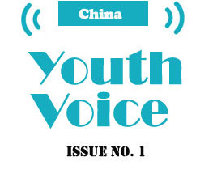
 |
What I know about #Sino-Japan ties#...
Editorial:Three years ago, I was studying in Nagoya University of Japan. During my stay, I was impressed by the uniqueness of Japanese culture and fascinated by the Sino-Japan cultural exchanges in history. Recalling the past, these two East Asian giants have lived in peace for the most of time, jointly contributing to the prosperity of Asian civilization the prosperity of Asian the prosperity of Asian.[Comment] |
|
Zhang Chunman PhD candidate |
Li Ran PhD Candidate |
Liu Peng Assistant Researcher |
Daili Wang PhD Candidate |
Li Jinyang NRI Consultant |
|
|
|
Three years ago, I was studying in Nagoya University of Japan. During my stay, I was impressed by the uniqueness of Japanese culture and fascinated by the Sino-Japan cultural exchanges in history. Recalling the past, these two East Asian giants have lived in peace for the most of time, jointly contributing to the prosperity of Asian civilization. Three years ago, I was studying in Nagoya University of Japan. During my stay, I was impressed by the uniqueness of Japanese culture and fascinated by the Sino-Japan cultural exchanges in history. Recalling the past, these two East Asian giants have lived in peace for the most of time, jointly contributing to the prosperity of Asian civilization. But entering the 21st century, historical exchanges and friendship are shadowed by the historical problems and territorial disputes. |
|
|
|
|
|
What lurks behind the territorial and historical disputes between China and Japan is the chilly atmosphere of public opinion in both countries, which have been the most important influence on Sino-Japanese relations. Public opinion in both countries is hostile and tends to stifle dissent. Despite the increasingly radical public opinion, both countries show their laissez-faire attitudes at its best. The politicians have no intentions to persuade the public, or they don’t dare to try. In China, the tough stance of military experts is applauded online while Japan's domestic opinion is led by its right-wing politicians, who instead flare up the topics for short-term interests. All these have obstructed diplomatists from trying to solve the problem meticulously, reasonably and realistically, what’s more, to maximize the national benefit of both countries.More |
|
|
|
Lately a friend told me a story of how two extra-large suitcases were found to be suspiciously empty when a Chinese woman tried to pass the New York Customs and Border Protection check point. Upon asking, the lady replied: I plan to shop along the 5th avenue. Why do I need to bring any clothes? This short story reminded me a piece of somewhat-relevant history. Around 20 years ago, on the heels of a three-decade long “Economic Miracle”, Japan was experiencing its infamous “bubble economy”. At the time, the price of Tokyo’s prime neighborhoods rose to levels approximately 350 times more expensive than comparable land in Manhattan, New York. The land underneath the Tokyo Imperial Palace was rumored to have been worth as much as the entire state of California. Intoxicated in the speculative mania, numerous Japanese families flew to New York, Paris and London, visiting, dining and shopping. However, the collapse of the bubble ruthlessly threw the country into a long period of economic stagnation soon afterwards. More |
|
|
|
Three years ago, I was studying in Nagoya University of Japan. During my stay, I was impressed by the uniqueness of Japanese culture and fascinated by the Sino-Japan cultural exchanges in history. Recalling the past, these two East Asian giants have lived in peace for the most of time, jointly contributing to the prosperity of Asian civilization. Three years ago, I was studying in Nagoya University of Japan. During my stay, I was impressed by the uniqueness of Japanese culture and fascinated by the Sino-Japan cultural exchanges in history. Recalling the past, these two East Asian giants have lived in peace for the most of time, jointly contributing to the prosperity of Asian civilization. But entering the 21st century, historical exchanges and friendship are shadowed by the historical problems and territorial disputes. |